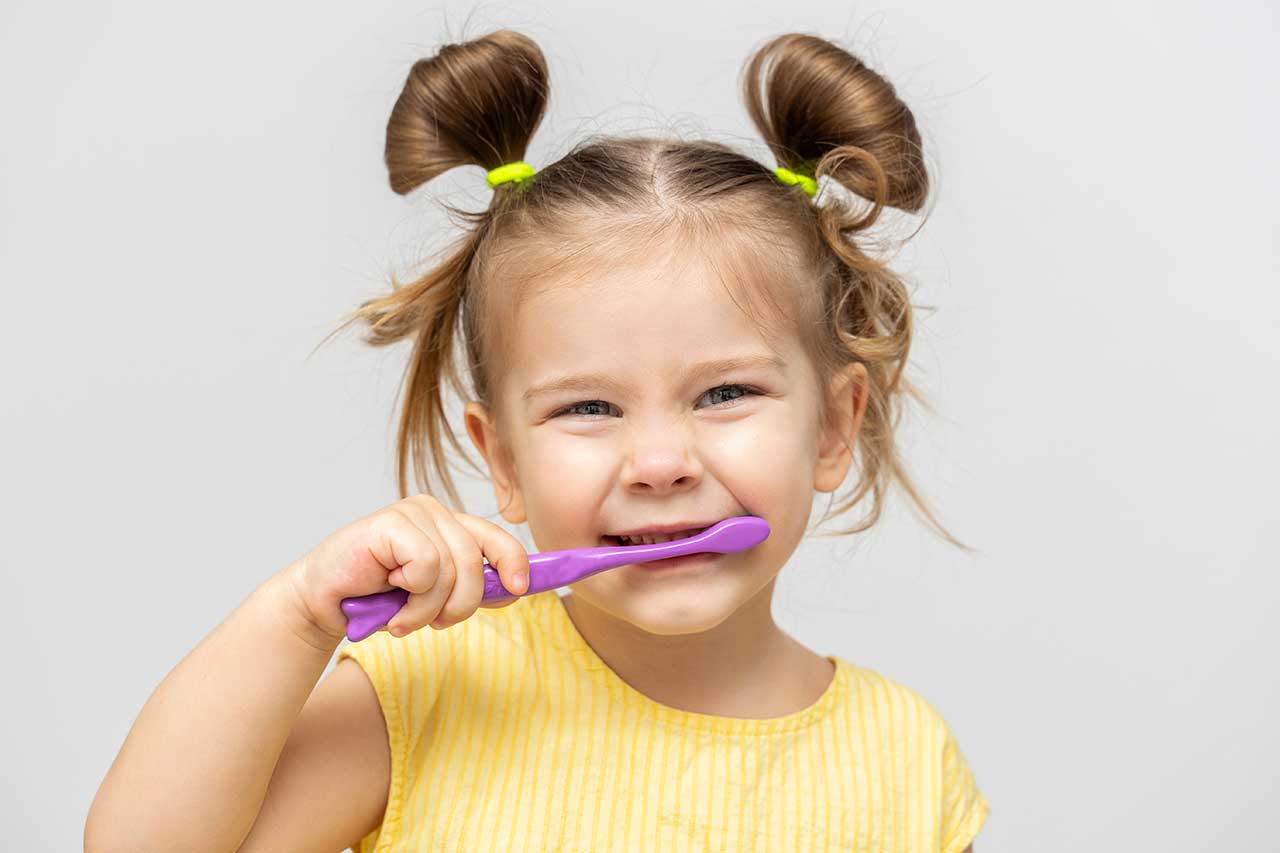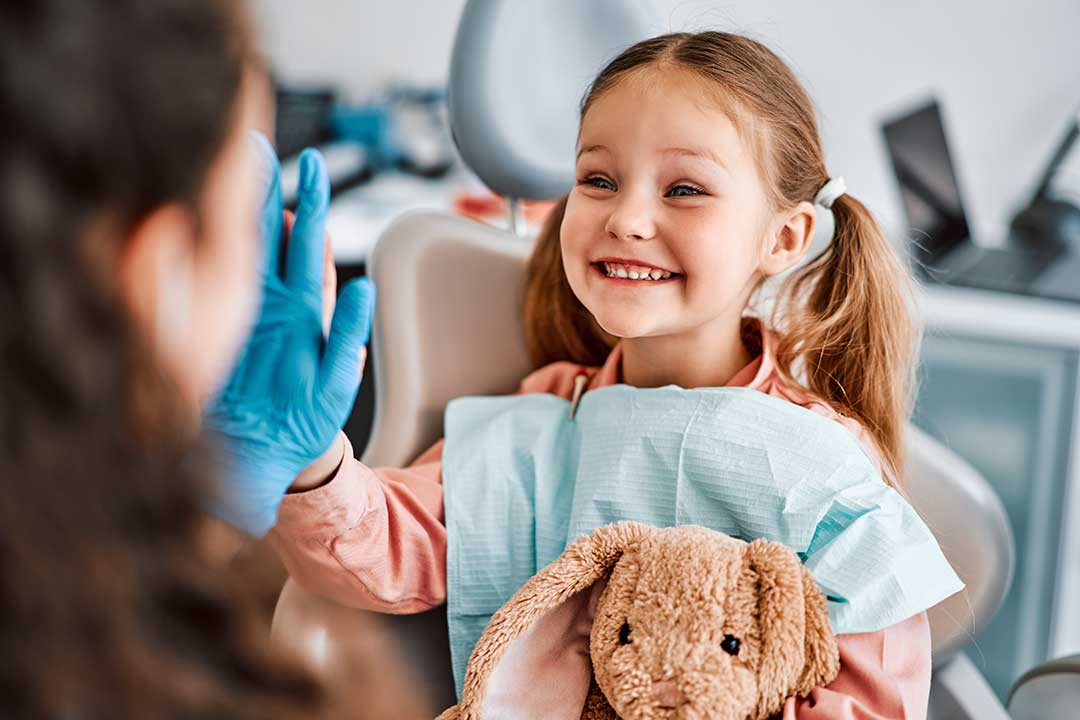Baby teeth usually begin to erupt before a child turns 1, and all primary teeth have usually erupted by the time the child is 3 years old. Although primary teeth are eventually replaced by permanent teeth, they serve important roles for the years they are present in a child’s mouth. Decay of these primary teeth can affect the permanent teeth as well as the overall health of the child as follows:
Structural changes to the developing permanent teeth
Cavities in primary teeth, if untreated, can lead to an infection in the jaw bones that house the developing permanent teeth, eventually causing altered morphology, decreased structural integrity, or permanent discolouration of these permanent teeth.
Decay in the erupting permanent teeth
Cavities in the primary teeth indicate that there is a large population of decay-causing bacteria present in the oral cavity. When permanent teeth start erupting at 6 years of age, they are at a greater risk of decay due to the presence of these large bacterial colonies as well as a lack of oral hygiene practices.
Oral habits
It is important for children to take care of their primary teeth as a habit-forming exercise. Studies show that children who don’t make a habit of maintaining their primary teeth usually suffer from decay in their permanent dentition as they were unable to develop the habit of maintaining oral hygiene. Decay also compromises the aesthetics of the affected teeth, which in turn makes the child less likely to take care of them.

Studies show that children who don’t make a habit of maintaining their primary teeth usually suffer from decay in their permanent dentition due to a lack of oral hygiene habits.
Malalignment and Orthodontics
Decay in the primary teeth can lead to the early loss of these teeth. Their premature removal can then cause a number of complications, including delays in the eruption of the underlying permanent teeth, as well as movement of adjacent teeth into the area where the primary tooth was prematurely extracted. This can lead to space loss and malalignment of teeth, requiring orthodontic intervention in the future.
It is clear that the health of primary teeth plays an important role in maintaining the permanent dentition. Parents should therefore ensure that they promote proper oral hygiene practices at the time of eruption of the very first tooth, and bring the child to the scheduled dental appointments as this allows the dentist to put preventive strategies in place.


